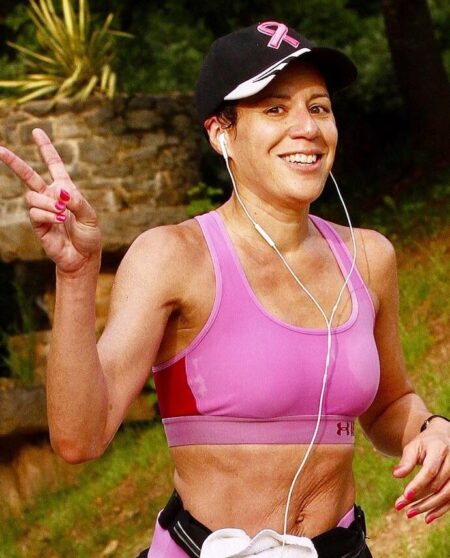A breast cancer diagnosis is life altering, earth shattering and causes a wide range of emotions in a newly diagnosed patient. This was definitely the case for Julie Alexander Nixon, an Atlanta mother of three who was diagnosed with cancer at 48 years of age. “The doctors were pretty baffled by me. I ate healthy, was a runner and athlete” when her stage I invasive carcinoma was discovered after her annual mammogram.
The now 52-year-old Nixon immediately went into fight mode once her new reality set in. She explored all treatment options with the assistance and guidance of her oncologist Dr. William Jonas. “I got a lumpectomy, followed by radiation and chemotherapy,” she said. “I didn’t qualify for any clinical trials, but if I had, I definitely would have participated in one.”
A clinical trial is a research project that studies how well an unproven medical procedure or treatment works in people. Animals and a lab environment lay the groundwork for revolutionary remedies, but testing how human beings respond to new regimens is key to the progression of modern medicine.
The National Institutes of Health maintains a free database of clinical trials. The trials usually consist of four phases that are closely monitored, and participants may be the recipient of a life-saving protocol or a placebo that has no therapeutic effect on the patient. The number of Black people who participate in clinical trials is historically lower than other ethnicities because of various factors, such as limited access to health care and a cultural suspicion of the medical establishment.
For that reason it’s critical for Black women to consider a non-traditional path to wellness, in conjunction with the protocol suggested by their health-care professional. Nixon didn’t participate in a trial, but she was the beneficiary of women who came before her who were participants. The linchpin in her treatment was Herceptin, a drug used to treat more than 10,000 women with an aggressive form of breast cancer in clinical trials ending in 2015 and which continues to be effective today.
According to the NIH, the benefits of participating in a clinical trial include getting a new treatment before it’s available to everyone else and helping others get better treatment for their maladies in the future, as was the case with Nixon. In short, clinical trials save lives.
“I was infused with Herceptin every three months, and I know that was a game changer,” she said. Although she did not participate in a clinical trial she said she is overwhelmingly grateful to the women who did and acknowledges it’s part of the reason she’s healthy, happy and cancer free today.
—Tamar Leak Suber






